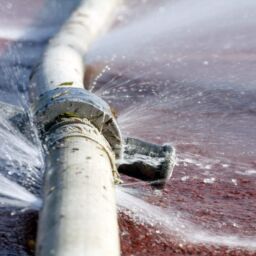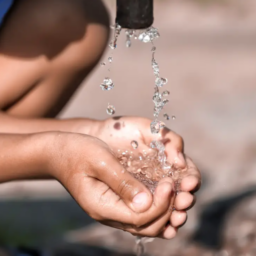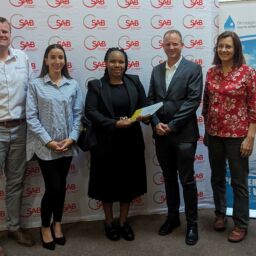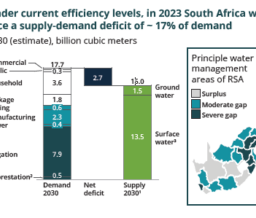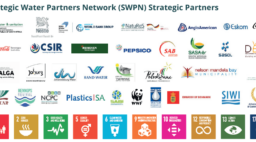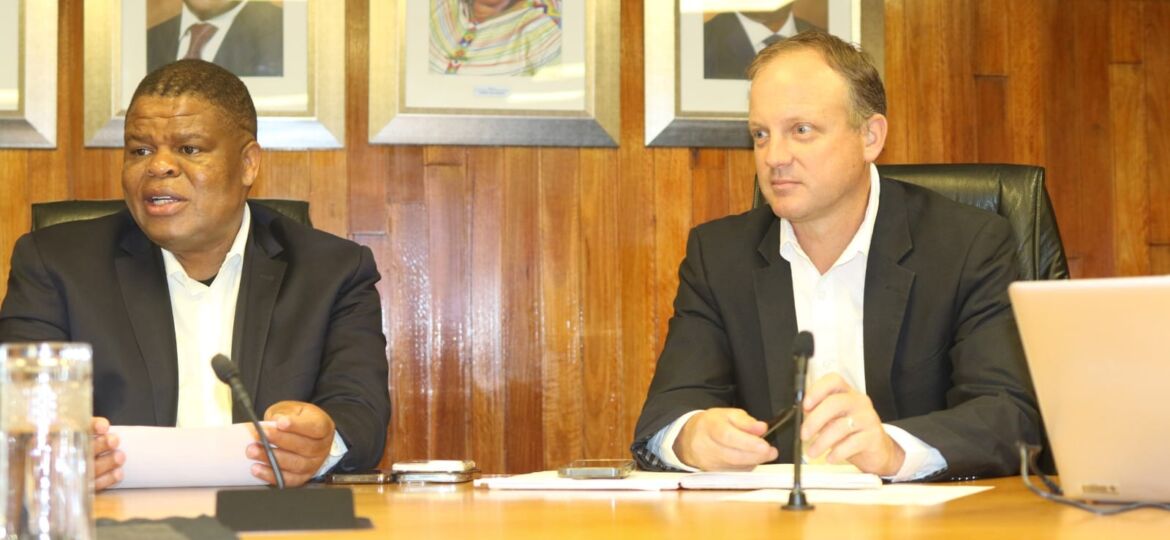
The Strategic Water Partners Network (SWPN), co-chaired on the public sector side by the Department of Water and Sanitation (DWS) and the private sector by South African Breweries (SAB), recently met with Deputy Minister David Mahlobo for a strategic engagement that reinforced the critical importance of public-private collaboration in addressing South Africa’s water security challenges.
As the only water partnership acknowledged in both the DWS National Water and Sanitation Master Plan and the National Water Resource Strategy since 2012, SWPN serves as a neutral platform for driving collective action to close the water gap by 2030.
The engagement focused on strengthening collaboration to tackle the country’s three major challenges: unemployment, poverty, and inequality through integrated water sector solutions.
Deputy Minister Mahlobo emphasised the fundamental principle that “water does not belong to government – it belongs to the people of our country.” He highlighted the need for an integrated approach across agriculture, water, and energy sectors, calling for user-friendly policies that will enable private sector participation in job creation.
The Deputy Minister announced several key reforms, including:
- Opening opportunities for private sector participation in bulk water infrastructure;
- Accelerating water security initiatives;
- Establishing an independent water producer programme;
- Developing performance-based contracts for sustainable water provision; and
- Creating new models for public-private partnerships.
A significant focus of the discussion centred on developing knowledge-based solutions and improving public awareness about water conservation. “It is high time for the water sector to take a proactive approach in making sure that our people are accessing high-quality water, and we also need to make sure that we produce more by using less resources,” stated Deputy Minister Mahlobo.
SWPN private sector co-chair, Alyssa Jooste, representing the SAB, highlighted the organisation’s commitment to partnership: “We want our partnership to focus on driving collective action and working together with the department to bridge the gap in water security challenges within our country.”
Peter Varndell, representing SWPN, emphasised the organisation’s unique position as a neutral convener of partnerships. “Our core function is the neutral convening of partners and creating task forces to understand the issues. We believe this partnership is critical in addressing gaps through a leadership-led approach.”
Nandha Govender, an SWPN Manco member (Eskom), emphasised the importance of research and technology development: “We have to put in a lot of effort into our research technology developed areas. We have to look at the green economy very clearly… without water, we cannot produce, and our entire supply chain is so important to us.”
Martin Ginster, an SWPN Manco member (Sasol), highlighted the concept of water stewardship: “Water is something we all will never own, but we need to care a lot about. The simplest way of looking at it is about understanding the risk or the challenge that one faces and then responding to that often collectively.”
Michelle Proude, Programme Officer for the SWPN, emphasised the partnership’s commitment to deeper engagement: “We want to work closer with various departments and really would like to raise our profile within the sector.”
Following a successful and enlightening engagement, Deputy Minister Mahlobo committed to strengthening communication and raising SWPN’s profile across various platforms, including international forums. “We need to strengthen communication going forward, and we are starting now with this initiative to make sure that its work is highly profiled.” His office will be undertaking individual site visits to SWPN partner organisations throughout the year to deepen engagement with the private sector.
In conclusion, the Deputy Minister emphasised the importance of integrated approaches, stating, “For our country to progress, we must all understand there is a premium to be paid.” He committed to strengthening SWPN’s role as a critical vehicle for addressing water challenges through public-private collaboration,” highlighting the government’s commitment to elevating the partnership’s visibility and impact.
Future Commitments:
- Enhanced coordination between private sector entities and the department
- Streamlined engagement processes using SWPN as a primary point of entry
- Expanded focus on priority intervention areas including Gauteng
- Development of sustainable local municipalities through water partnerships
- Strengthened support for SWPN’s municipal water initiatives
- Facilitation of smoother interactions between business and government
About SWPN
The Strategic Water Partners Network, launched at the World Economic Forum in 2011 by the late Minister Edna Molewa, is a multi-stakeholder platform co-chaired by the public sector side by DWS and the private sector by SAB. The network serves as a neutral platform for public and private sector collaboration, dedicated to achieving efficient, equitable, and sustainable water supply and access to water and sanitation for all South Africans through innovative and cost-effective solutions.
Key features of SWPN include:
- Recognition in both the National Water and Sanitation Master Plan and National Water Resource Strategy
- Global exposure through partnerships with the 2030 Water Resources Group (World Bank), GIZ, and the Alliance for Water Stewardship
- A proven track record of supporting municipal water initiatives
- Alignment with Sustainable Development Goals and government objectives
- Effective project partnerships combining multiple stakeholder strengths





